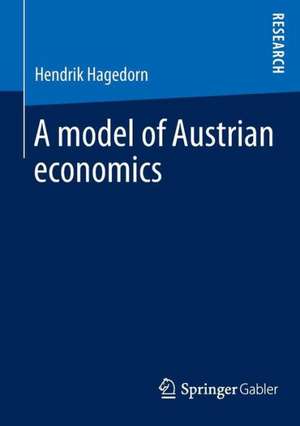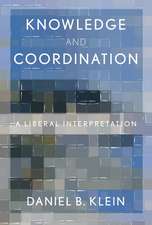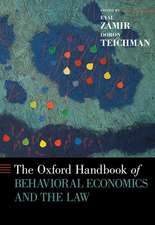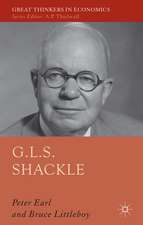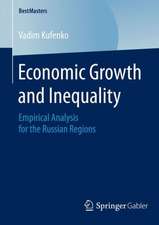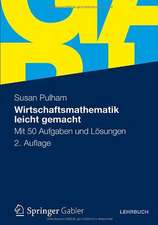A model of Austrian economics
Autor Hendrik Hagedornen Limba Engleză Paperback – 18 sep 2014
Preț: 376.59 lei
Nou
Puncte Express: 565
Preț estimativ în valută:
72.06€ • 75.39$ • 59.86£
72.06€ • 75.39$ • 59.86£
Carte tipărită la comandă
Livrare economică 03-17 aprilie
Preluare comenzi: 021 569.72.76
Specificații
ISBN-13: 9783658070762
ISBN-10: 3658070765
Pagini: 112
Ilustrații: VIII, 104 p. 26 illus., 10 illus. in color.
Dimensiuni: 148 x 210 x 12 mm
Greutate: 0.15 kg
Ediția:2015
Editura: Springer Fachmedien Wiesbaden
Colecția Springer Gabler
Locul publicării:Wiesbaden, Germany
ISBN-10: 3658070765
Pagini: 112
Ilustrații: VIII, 104 p. 26 illus., 10 illus. in color.
Dimensiuni: 148 x 210 x 12 mm
Greutate: 0.15 kg
Ediția:2015
Editura: Springer Fachmedien Wiesbaden
Colecția Springer Gabler
Locul publicării:Wiesbaden, Germany
Public țintă
ResearchCuprins
An agent-based economy within an accounting framework.- Reaction algorithms for households, firms, and banks.- A contribution to interest-rate theory.- A comparison of Austrian and neoclassical economics.
Notă biografică
Hendrik Hagedorn is a physicist and an economist. He works at an institute for applied economic research in Germany.
Textul de pe ultima copertă
After the most recent financial crisis it has become clear that there exists a crisis also in economics as a science. The prevailing paradigms have failed to anticipate and to understand the financial crisis. New approaches are therefore needed. Of particular interest should be approaches that combine insights from those parts of economics that are largely neglected by the mainstream. Hendrik Hagedorn presents a model that synthesizes elements of Austrian, post-Keynesian, and evolutionary economics. Thus, an economic paradigm is developed that challenges neoclassical economics as a whole.
Contents
Hendrik Hagedorn is a physicist and an economist. He works at an institute for applied economic research in Germany.
Contents
- An agent-based economy within an accounting framework
- Reaction algorithms for households, firms, and banks
- A contribution to interest-rate theory
- A comparison of Austrian and neoclassical economics
- Students and researchers in the fields of economics and epistemology of the social sciences
- Macroeconomic analysts
Hendrik Hagedorn is a physicist and an economist. He works at an institute for applied economic research in Germany.
Caracteristici
Study in the field of economics Includes supplementary material: sn.pub/extras
